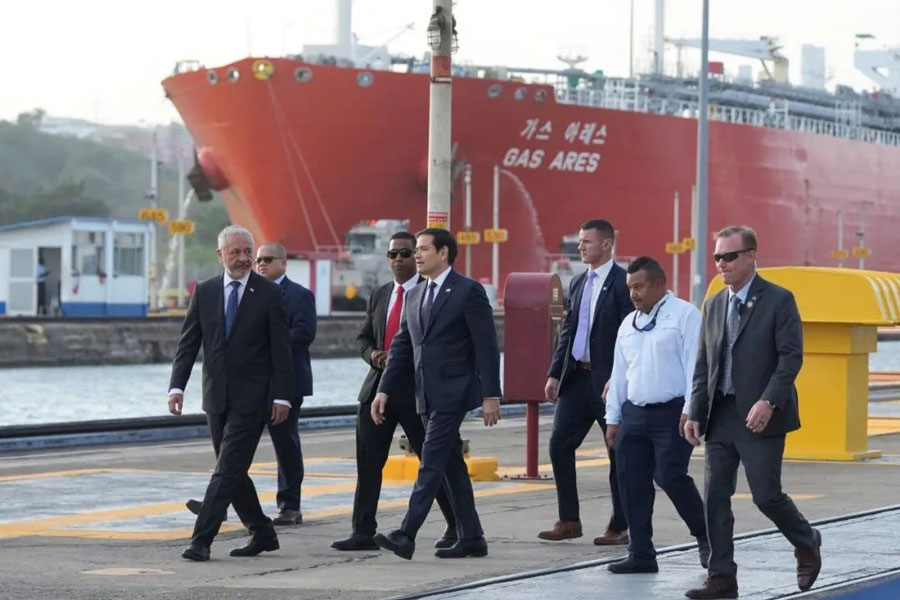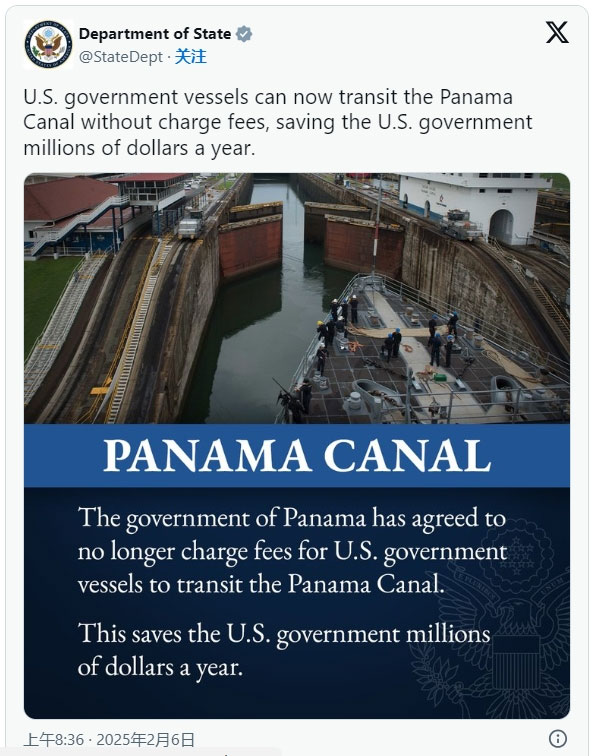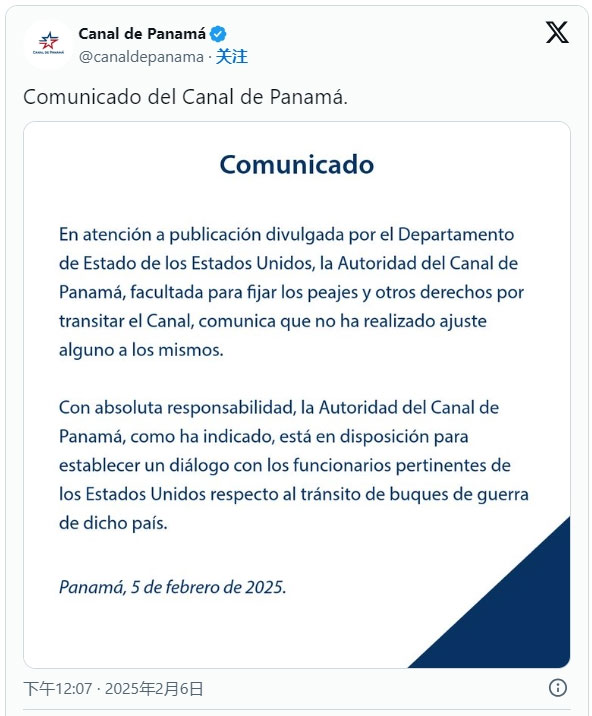

The ACP denied that the United States could pass through the Panama Canal for free
On February 5, the Panama Canal Authority (ACP) quickly refuted the US State Department's assertion that US government vessels can pass through the Panama Canal for free. The State Department previously announced in a statement that U.S. government vessels will no longer charge transit fees, which is expected to save millions of dollars a year. However, the ACP made it clear in its statement that no changes had been made to its fee structure, directly negating the State Department's statement.
The ACP said in the statement that it is willing to establish a dialogue with U.S. officials on the warship transit issue to find a solution. However, given that the Trump administration has repeatedly stated its desire to regain control of the Panama Canal, and has not even ruled out the possibility of seizing control through military or economic coercion, the future of the dispute is uncertain.
It is worth noting that after a constructive call between US Secretary of Defense James Hagseth and Panamanian Minister of Public Security Frank Afrego, the market took the US State Department's statement at face value. However, with the release of the ACP statement, the market began to have doubts about the event. When Trump again announced at the inauguration that he would take measures to regain control of the Panama Canal, Panama's foreign minister, the president and the director of the Canal Authority all quickly expressed their firm opposition to the United States and stressed that the sovereignty of the Panama Canal was unshakable.
The head of the Panama Canal Authority, Jose Manuel Vazquez, has said that granting tolls to U.S. ships would violate international treaties on the canal's neutrality and cause chaos. Panamanian President Maurino also made it clear that the canal toll standard setting process is open and transparent, and will not give US ships a separate price cut.
At present, the international community is closely watching the development of this incident, because it has a bearing on the international order and fair disputes. Panama Canal as an important strategic waterway, its management and toll has been the focus of international attention. In the future, as the United States and Pakistan carry out further dialogue and negotiations on this issue, the development of this incident will continue to be watched.

The ACP said in the statement that it is willing to establish a dialogue with U.S. officials on the warship transit issue to find a solution. However, given that the Trump administration has repeatedly stated its desire to regain control of the Panama Canal, and has not even ruled out the possibility of seizing control through military or economic coercion, the future of the dispute is uncertain.


It is worth noting that after a constructive call between US Secretary of Defense James Hagseth and Panamanian Minister of Public Security Frank Afrego, the market took the US State Department's statement at face value. However, with the release of the ACP statement, the market began to have doubts about the event. When Trump again announced at the inauguration that he would take measures to regain control of the Panama Canal, Panama's foreign minister, the president and the director of the Canal Authority all quickly expressed their firm opposition to the United States and stressed that the sovereignty of the Panama Canal was unshakable.
The head of the Panama Canal Authority, Jose Manuel Vazquez, has said that granting tolls to U.S. ships would violate international treaties on the canal's neutrality and cause chaos. Panamanian President Maurino also made it clear that the canal toll standard setting process is open and transparent, and will not give US ships a separate price cut.
At present, the international community is closely watching the development of this incident, because it has a bearing on the international order and fair disputes. Panama Canal as an important strategic waterway, its management and toll has been the focus of international attention. In the future, as the United States and Pakistan carry out further dialogue and negotiations on this issue, the development of this incident will continue to be watched.





